Project Title: Housing the Informality
Thesis abstract: “As the world’s population skyrockets, overpopulation in emerging urban cities leads to adverse living conditions for their inhabitants. Alexandra, located about 12km north east of Johannesburg’s city center is one of the most densely populated urban townships of South Africa. In 1994 under a democratic government and the end of Apartheid laws, Alexandra experienced an overflowing arrival of people and became the destination for many, creating an extremely high demand for housing. With the excessive demand in housing, new residents are occupying and building their homes in other people’s back yards or even the floodplain of the Jukskei River. The presence of people below the floodplain, results in raw sewage entering the river, causing pollution and ongoing erosion. In return, the intense annual rainfall causes extreme flooding that most of the times destroys people’s homes.
As a result, the high density informal housing in marginalized spatial conditions, such as the floodplains of the Jukskei River, creates a negative dialogue between occupants and the government. While government seeks relocation of occupants from the river floodplain, the occupants seek for safe housing options. The project seeks to foster the relationship between residents, river and civic life, by focusing on the spatial and environmental conditions in relation to housing insecurity aggravated by floodplain inhabitation. The design proposal is, to formalize housing of the Jukskei inhabitation, by building new homes on elevated platforms above the floodplain and providing an infrastructural framework that improves circulation and eliminates cramped conditions”.
Urban Strategy: Based on the annual rainfall and flood patterns, the site is divided into 3 zones. The Urban Strategy developed to address the problem, uses the available space between the settlements and the river, to build 3 rows of elevated homes in a more organized framework that allows for circulation and shared space. Once the first row of homes is built next to the river, the occupants of flood zone #1 can relocate to their new elevated homes above. This way, the land of flood zone #1 can now be the new site for the second row of elevated homes dedicated for the occupants of flood zone #2. By using a sensitive strategy, occupants are not forced to leave their settlements but rather wait for their new homes to be built before relocating. This strategy allows for reorganization of the infrastructural grid and respects the occupants by allowing them to remain on site while new elevated homes are being built.
This project deals with: Urban Design Strategies, Architecture Solutions for Emerging Contexts and Social and Environmental Issues caused by Dense Populations.
Marika Mavroleon
Marika recently graduated from Philadelphia University where she received her Bachelor of Architecture Degree with a Minor Degree in Landscape Planning. Marika is an analytical thinker and a problem solver while many of her academic projects are influenced by culture, context and a respect to the environment. Her thesis project was nominated by Philadelphia University to represent the school’s Architecture Program in the Archiprix International Competition for the best graduate architectural projects that will be hosted by Madrid in 2015. Her thesis project is focusing on a township of South Africa and is addressing issues of population density through architecture and the implementation of urban strategies.
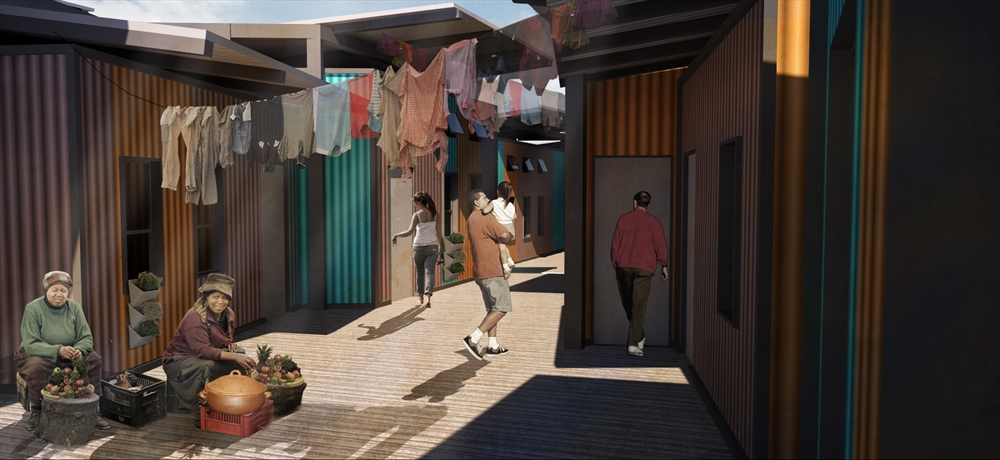 ONE PLATFORM PERSPECTIVE
ONE PLATFORM PERSPECTIVE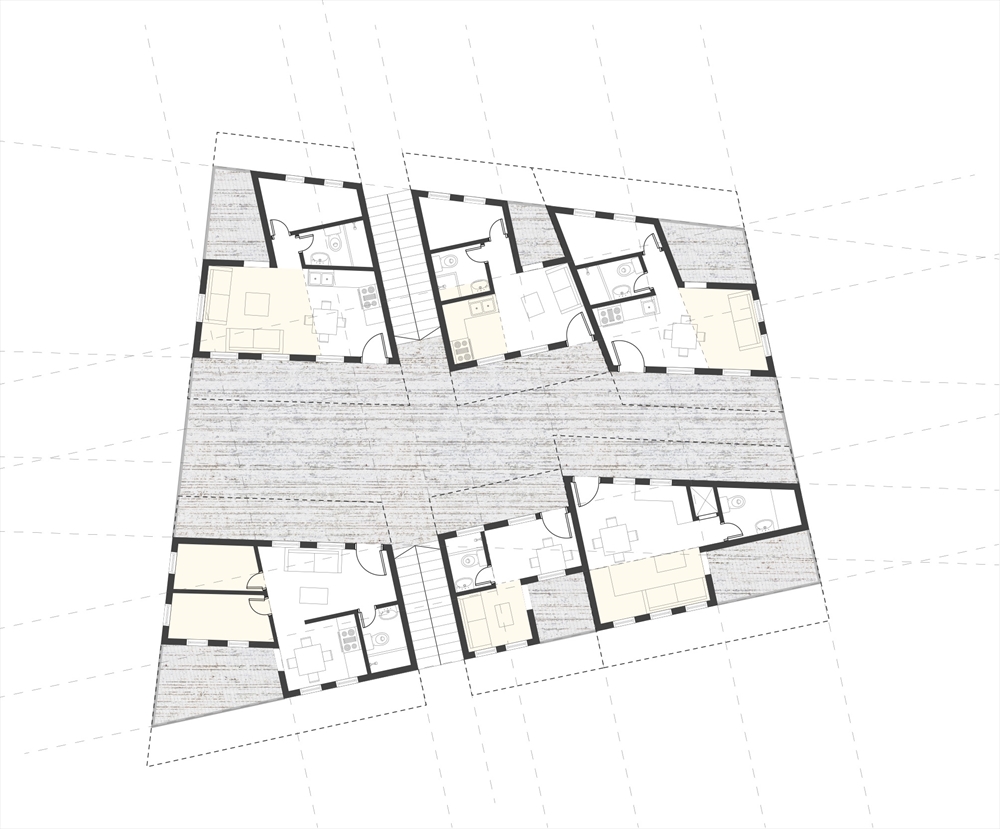 ONE PLATFORM FLOORPLAN
ONE PLATFORM FLOORPLAN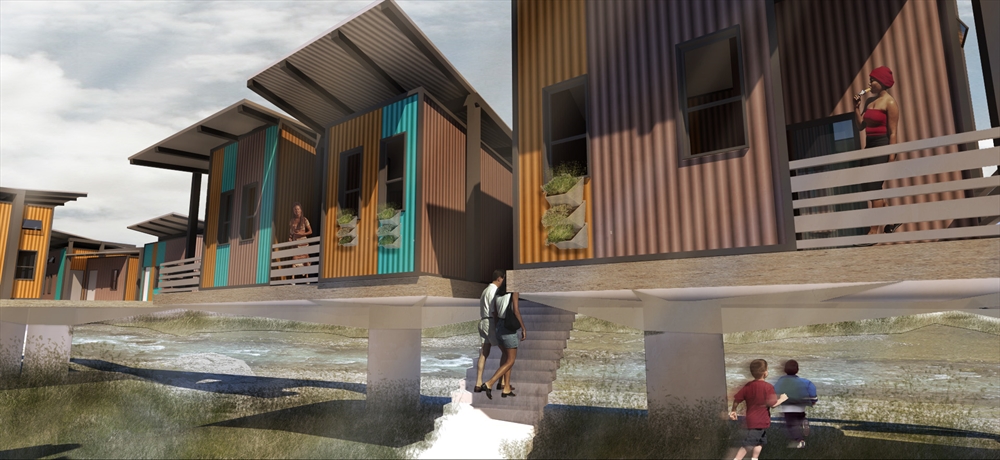 STRUCTURE UNDERNEATH
STRUCTURE UNDERNEATH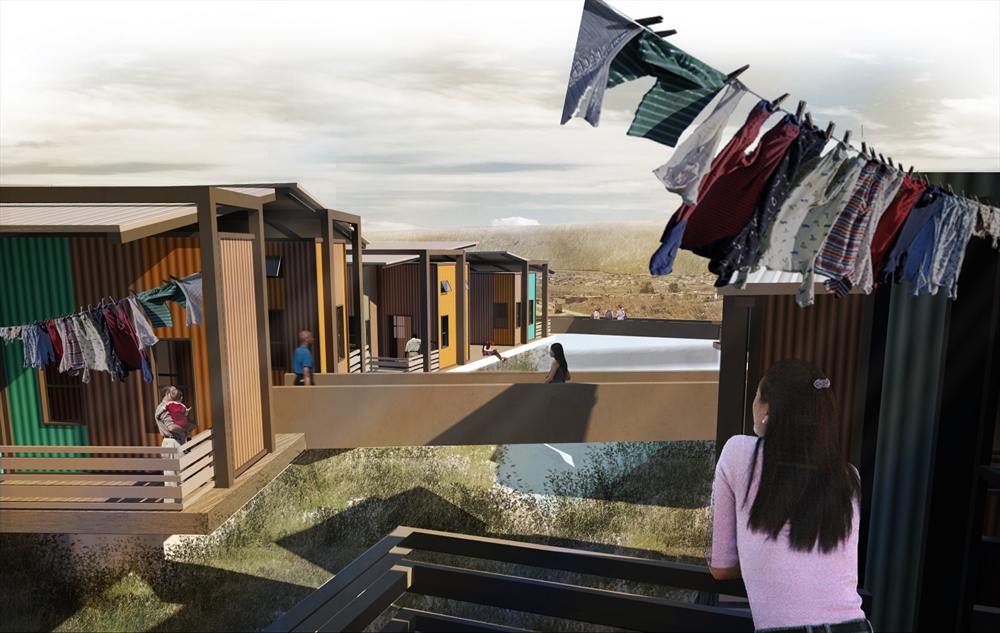 MAIN PERSPECTIVE
MAIN PERSPECTIVE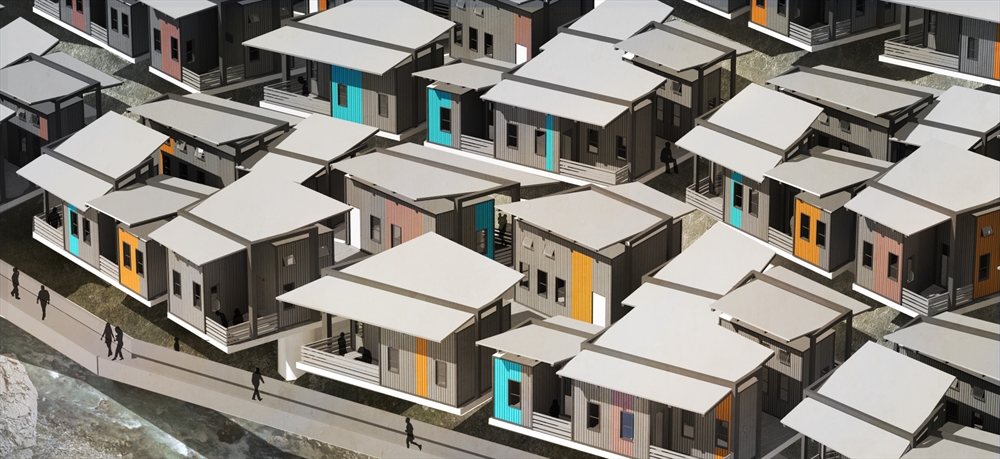 BIRD`S EYE PERSPECTIVE
BIRD`S EYE PERSPECTIVE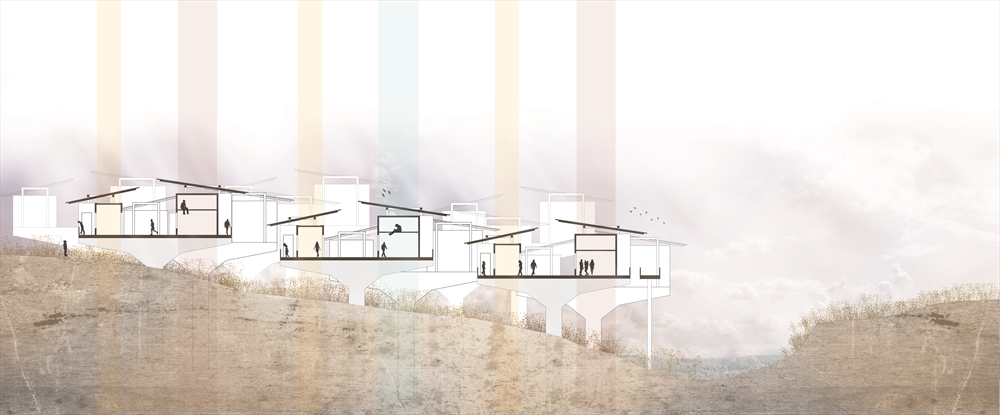 PLATFORMS SECTION
PLATFORMS SECTION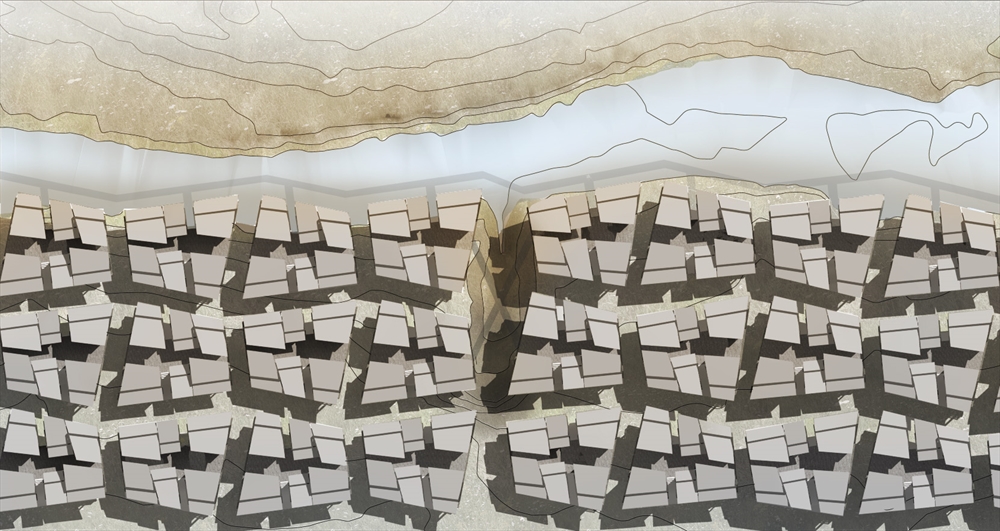 SITE PLAN PROPOSAL OF PLATFORMS
SITE PLAN PROPOSAL OF PLATFORMS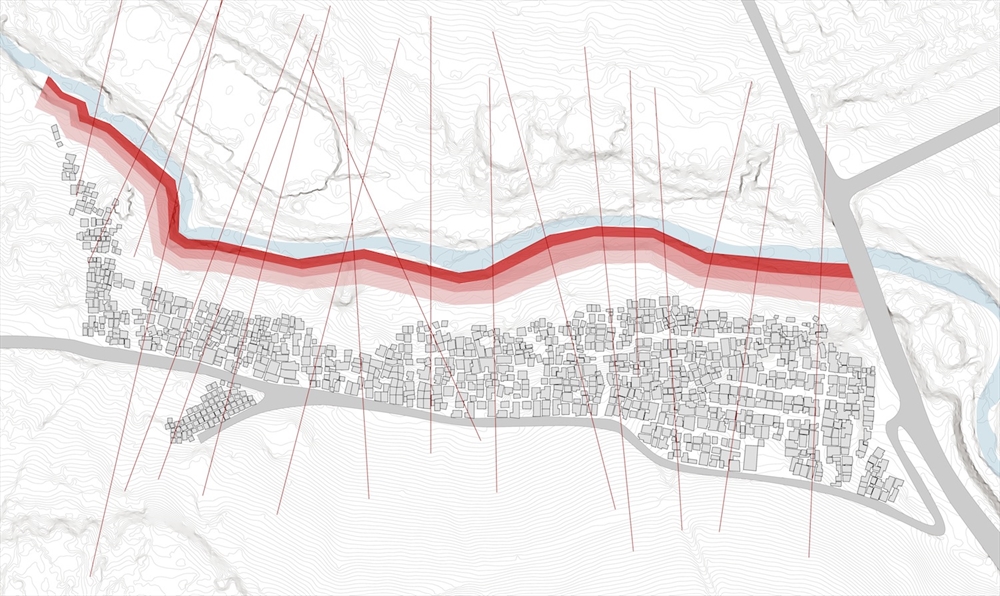 THE SOLUTION STRATEGY – 3 FLOODING ZONES MOVE UP
THE SOLUTION STRATEGY – 3 FLOODING ZONES MOVE UP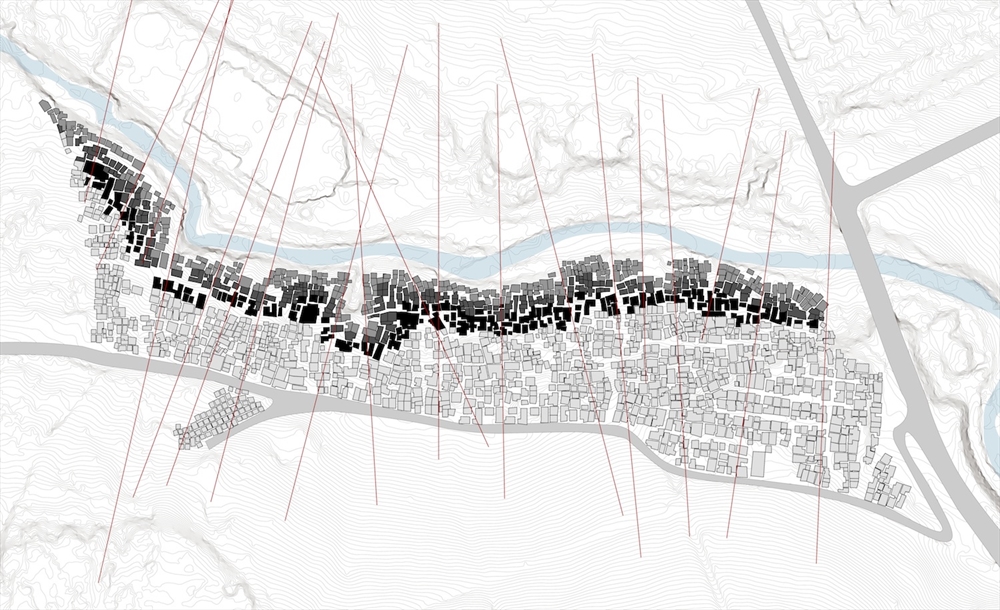 THE PROBLEM – 3 ZONES OF FLOODING
THE PROBLEM – 3 ZONES OF FLOODINGREAD ALSO: GUILD OF RADIOLOGISTS ANNUAL REPORT BY CRAIG PALMER